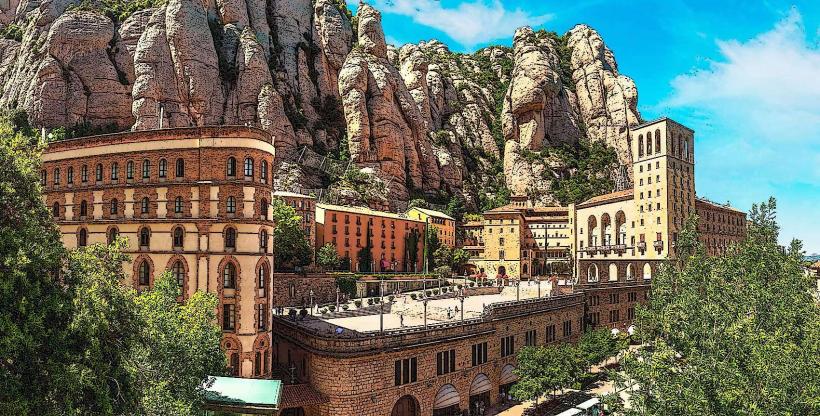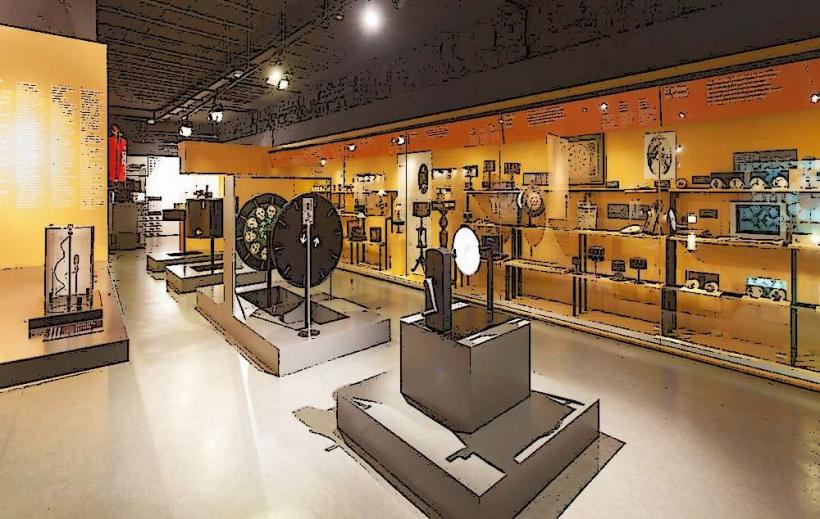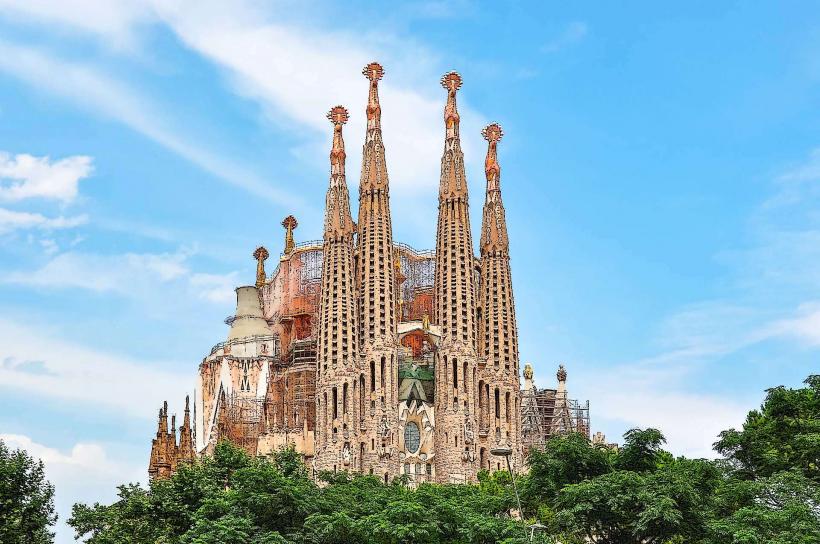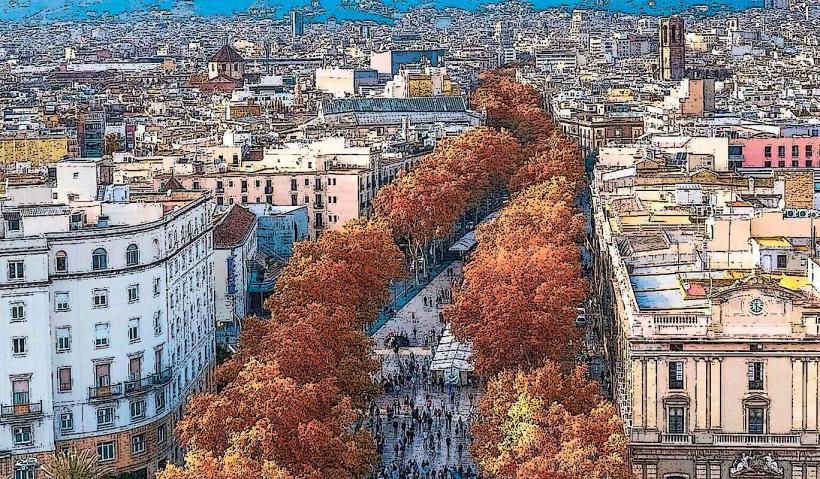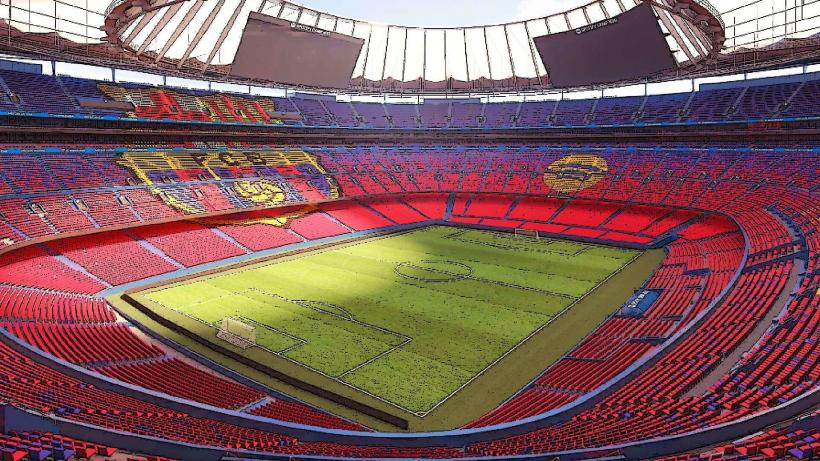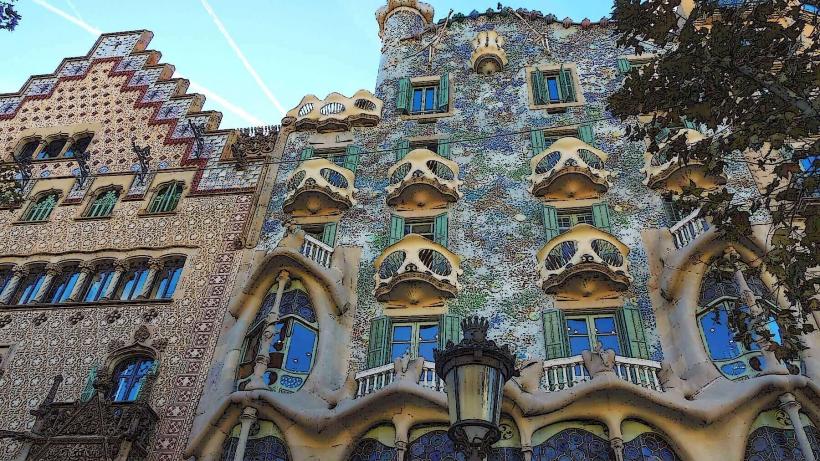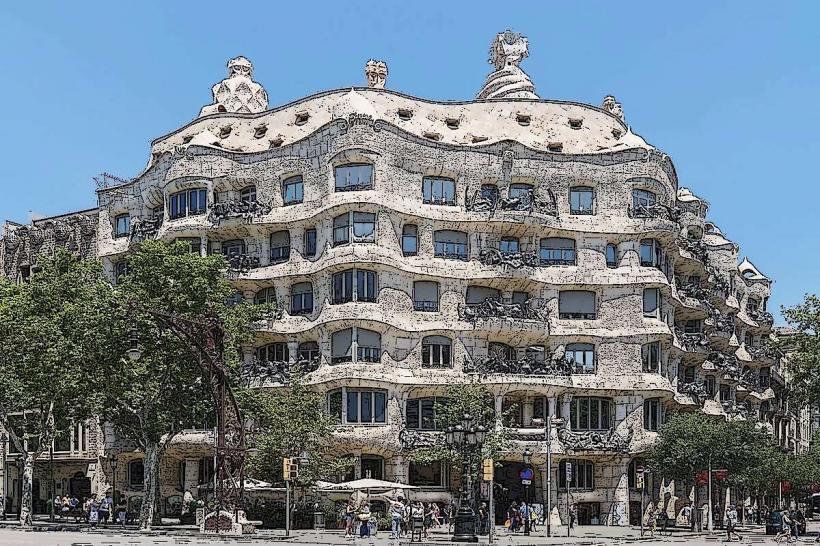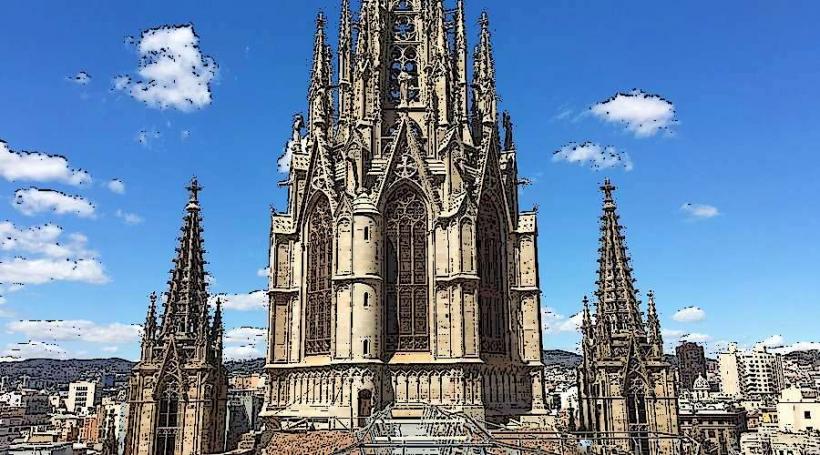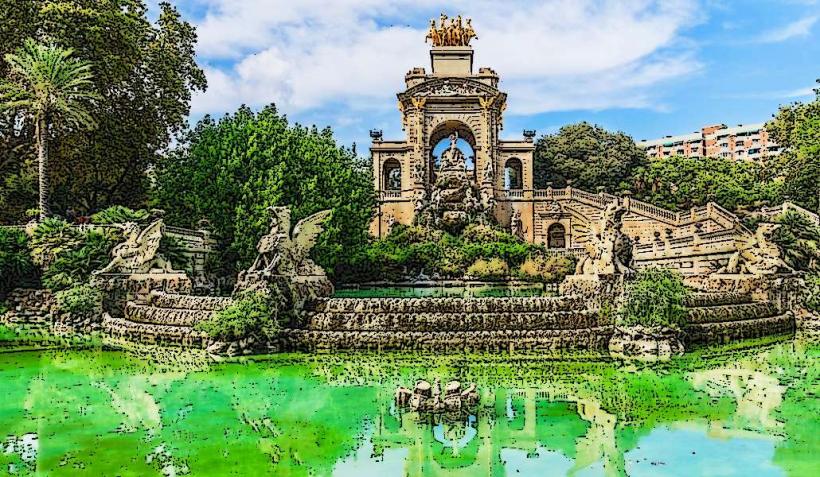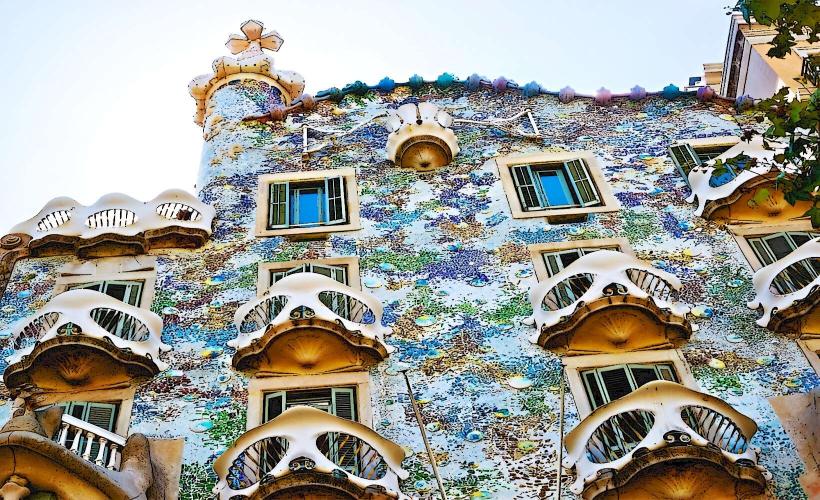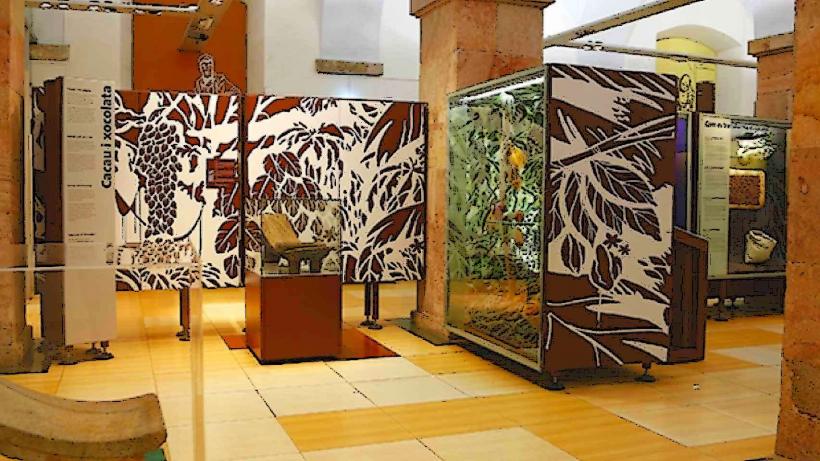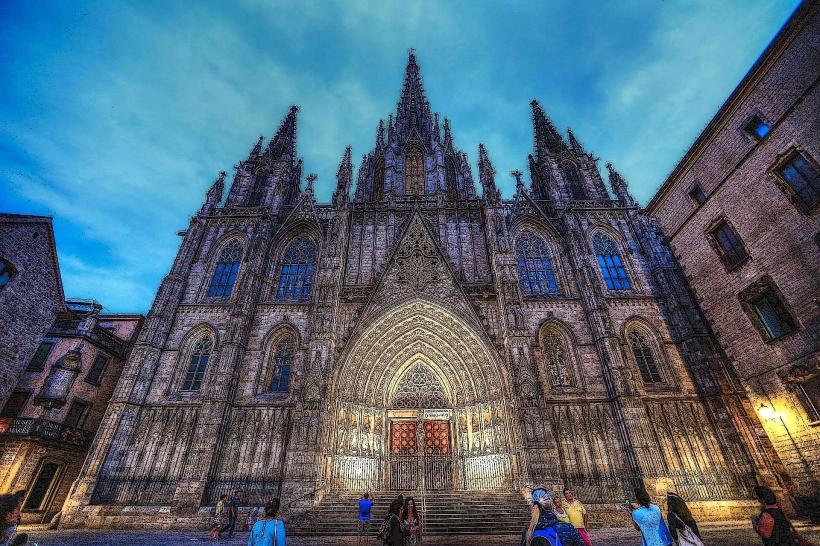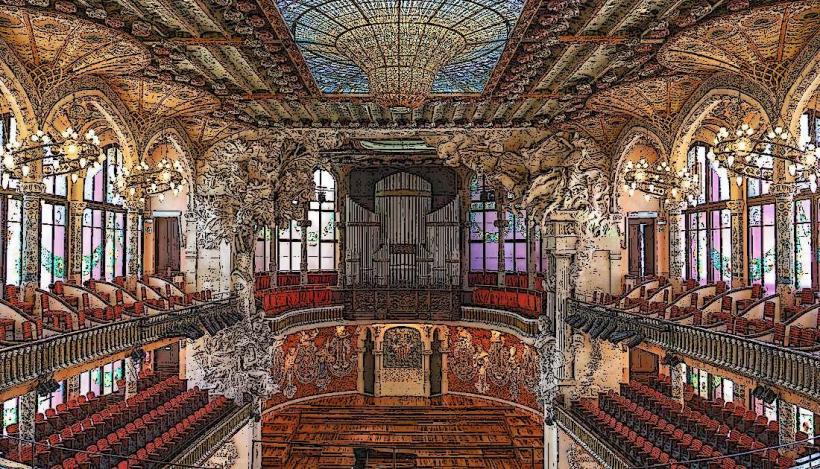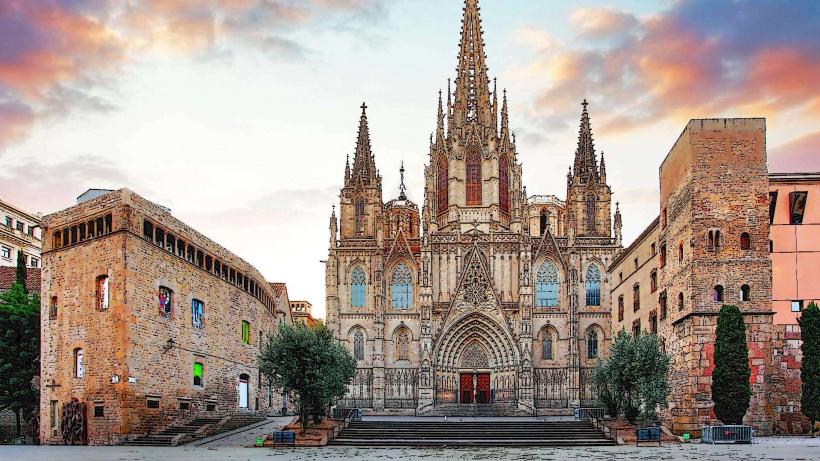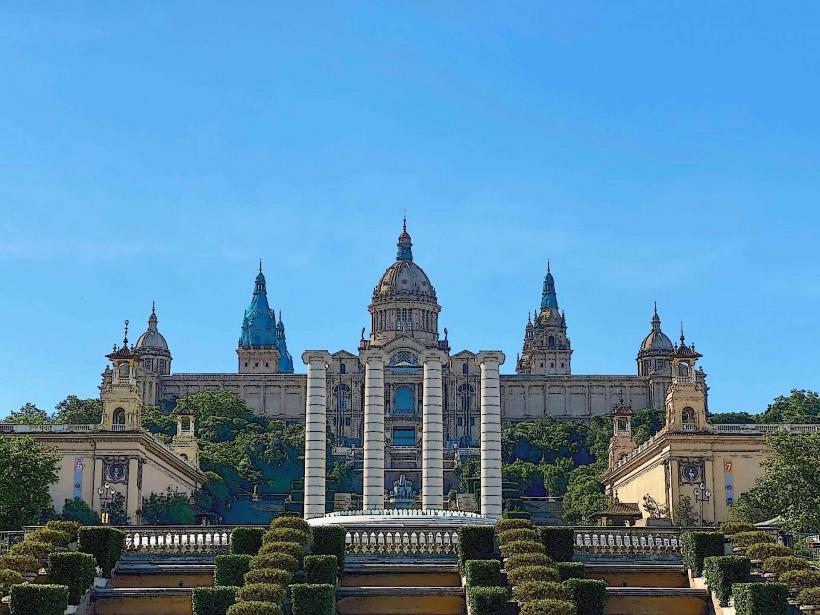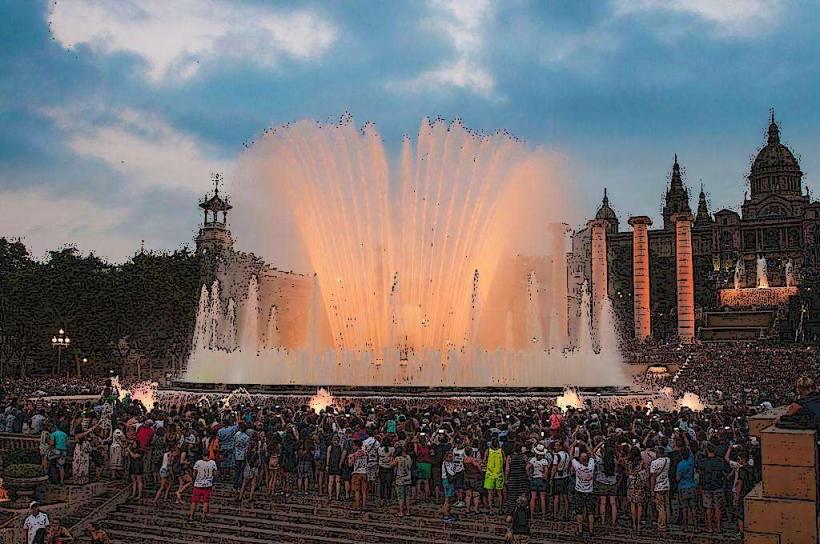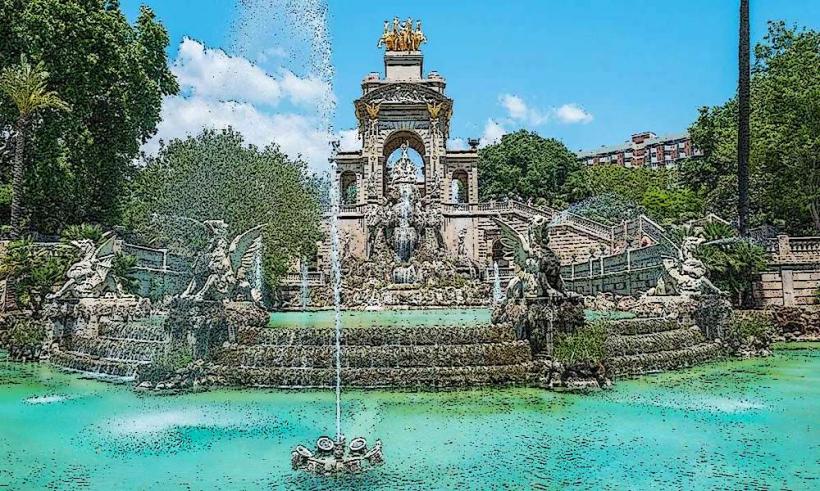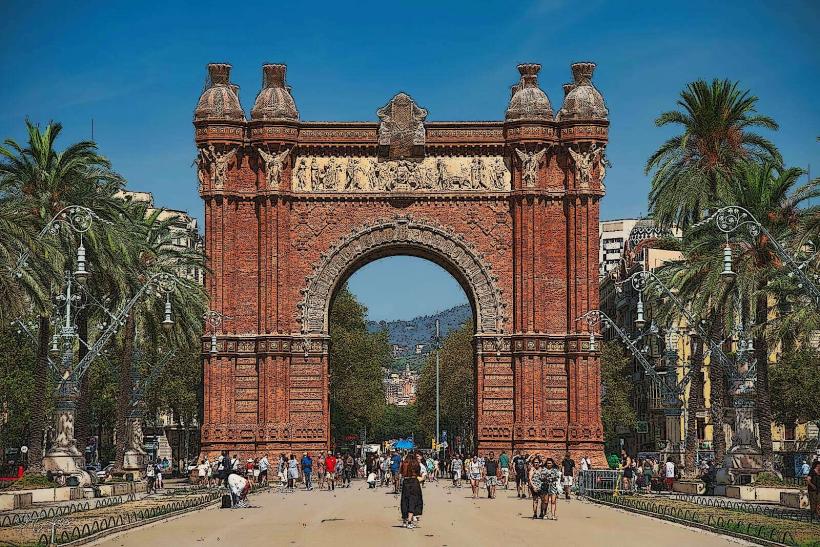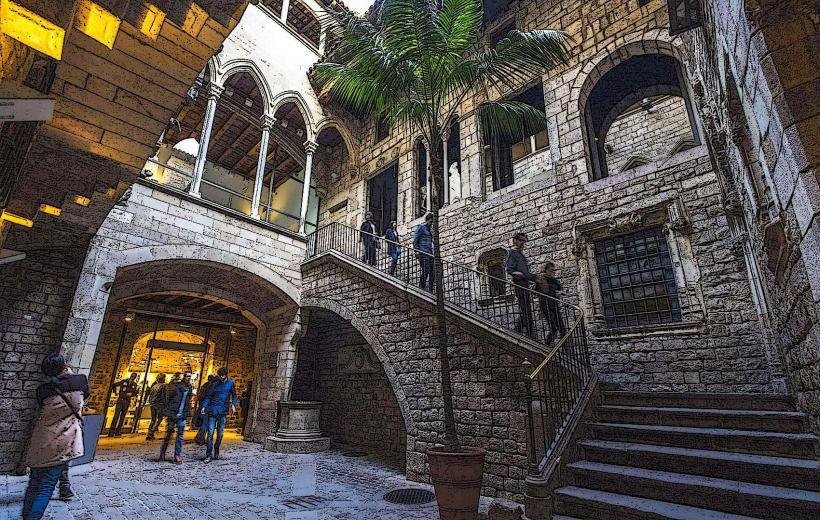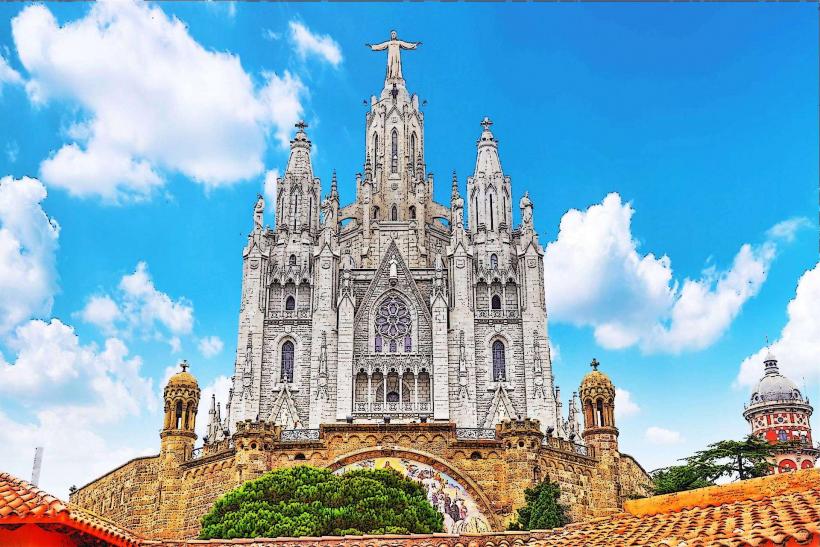Information
Landmark: Park GuellCity: Barcelona
Country: Spain
Continent: Europe
Park Guell, Barcelona, Spain, Europe
Park Güell is a privatized garden complex composed of gardens and architectural elements located on Carmel Hill in Barcelona. Designed by Antoni Gaudí and built between 1900 and 1914, it is a UNESCO World Heritage site.
Visual and Structural Characteristics
The park reflects Gaudí’s naturalist phase, characterized by organic shapes and the absence of straight lines. It is famous for its use of trencadís-a mosaic technique utilizing broken ceramic pieces.
Entrance Pavilions: Two gingerbread-style houses with hyperbolic roofs and white ceramic decor.
Dragon Stairway: A double stairway featuring the iconic mosaic salamander (the "Dragon").
Hypostyle Room: A forest of 86 Doric columns originally intended as a market for the residential estate.
Nature Square (Plaça de la Natura): An expansive open space surrounded by a continuous undulating bench covered in multicolored mosaics.
Location and Logistics
Address: Gràcia, 08024 Barcelona, Spain.
Access: Located in the upper part of the city. Access involves significant uphill walking.
Transport: * Metro: L3 (Lesseps or Vallcarca stations) + 15-minute walk.
Bus: Lines H6 and D40; Bus Turístic (Blue Route).
Zoning: The park is divided into a Restricted Zone (monumental core) which requires a paid ticket, and a free access forest zone for residents.
Historical Context
Originally conceived by Eusebi Güell as a luxury housing estate, the project failed commercially with only two houses built. The city of Barcelona purchased it in 1922 and converted it into a public park. Gaudí lived in one of the houses (now the Gaudí House Museum) from 1906 to 1925.
Infrastructure and Amenities
Hours: Daily, 09:30 – 19:30 (current seasonal schedule).
Admission: Online booking is mandatory for the Monumental Zone. Tickets for adults are approximately €10.
Gaudí House Museum: Requires a separate ticket.
Connectivity: 5G/4G coverage is stable throughout the park.
Best Time to Visit
Sunrise or early morning to avoid peak crowds and capture the best light on the mosaics. The panoramic views of Barcelona and the Mediterranean are clearest on low-humidity days.
Nearby Landmarks
Gaudí House Museum: Within the park grounds.
Casa Vicens: 1.5 km South.
Sagrada Família: 2.2 km Southeast.
Bunkers del Carmel: 1.2 km East (offering 360-degree views).

